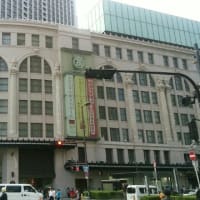
Japan's Beleaguered Leader to See Obama
By Blaine Harden
Washington Post Foreign Service
Tuesday, February 24, 2009; Page A07
TOKYO, Feb. 23 -- As the first foreign head of state invited to meet with President Obama in the White House, Japanese Prime Minister Taro Aso is viewed by most of his countrymen as a failed politician traveling.
Aso, scheduled to see Obama on Tuesday to discuss reviving the world economy, has been in office less than six months, but he already ranks among the most gaffe-prone and unpopular leaders in Japan's postwar history.
More than seven out of 10 Japanese disapprove of his government, according to three national polls released Monday. The public wants Aso to call a snap election as soon as possible, polls show, and it wants to toss him and his ruling party out of power, in what would be a seismic jolt to the country's long-frozen political structure. The Liberal Democratic Party (LDP) has more or less run Japan as a one-party state since World War II.
Aso, 68 and a career politician from a wealthy family, is the third consecutive prime minister to be chosen by members of the ruling party without a national election or popular mandate.
None of them has accomplished much, but Aso's star has plummeted far faster than that of his two immediate predecessors. Both of them quit after less than a year in power, when their approval ratings fell under 30 percent. Aso's support has dropped below 15 percent, but he insists that he will not resign, despite calls within his panicky party for someone else to take the lead in contesting an election that must be called by September.
With each passing week, Aso's problems seem to grow, compounded by his confusing policy pronouncements, his insults of powerful voting constituencies, reports of his frequent evenings at pricey hotel bars, the televised antics of his apparently drunk finance minister and, most important, the frighteningly rapid deterioration of the Japanese economy.
The economy, which depends entirely on exports for growth, is shrinking three times as fast as the deeply troubled U.S. economy, according to figures released last week.
Aso's principal idea for economic revival -- cash handouts of about $130 to everyone in the country -- is scorned by the public, which does not believe it will work, according to polls.
"Aso's weakness is that people don't know what his administration is trying to do," said Masaki Taniguchi, an associate professor of politics at Tokyo University. "What he says about the economy changes from time to time. He has lost trust."
Trust took a particularly severe beating last week when Aso's finance minister, Shoichi Nakagawa, looked drunk and half-asleep during a news conference at an economic summit in Rome. Nakagawa blamed cold medicine but also acknowledged drinking wine.
Even though video clips of the episode had become a television and Internet sensation in Japan, Aso initially supported Nakagawa's decision not to resign. After Nakagawa did quit, a majority of the public said Aso should bear responsibility for having named him to his cabinet, polls found.
"The finance minister quit over drinking, and we don't know if Aso's government is drunk or sleeping," said Hidekazu Kawai, professor emeritus of comparative politics at Gakushuin University in Tokyo.
By Blaine Harden
Washington Post Foreign Service
Tuesday, February 24, 2009; Page A07
TOKYO, Feb. 23 -- As the first foreign head of state invited to meet with President Obama in the White House, Japanese Prime Minister Taro Aso is viewed by most of his countrymen as a failed politician traveling.
Aso, scheduled to see Obama on Tuesday to discuss reviving the world economy, has been in office less than six months, but he already ranks among the most gaffe-prone and unpopular leaders in Japan's postwar history.
More than seven out of 10 Japanese disapprove of his government, according to three national polls released Monday. The public wants Aso to call a snap election as soon as possible, polls show, and it wants to toss him and his ruling party out of power, in what would be a seismic jolt to the country's long-frozen political structure. The Liberal Democratic Party (LDP) has more or less run Japan as a one-party state since World War II.
Aso, 68 and a career politician from a wealthy family, is the third consecutive prime minister to be chosen by members of the ruling party without a national election or popular mandate.
None of them has accomplished much, but Aso's star has plummeted far faster than that of his two immediate predecessors. Both of them quit after less than a year in power, when their approval ratings fell under 30 percent. Aso's support has dropped below 15 percent, but he insists that he will not resign, despite calls within his panicky party for someone else to take the lead in contesting an election that must be called by September.
With each passing week, Aso's problems seem to grow, compounded by his confusing policy pronouncements, his insults of powerful voting constituencies, reports of his frequent evenings at pricey hotel bars, the televised antics of his apparently drunk finance minister and, most important, the frighteningly rapid deterioration of the Japanese economy.
The economy, which depends entirely on exports for growth, is shrinking three times as fast as the deeply troubled U.S. economy, according to figures released last week.
Aso's principal idea for economic revival -- cash handouts of about $130 to everyone in the country -- is scorned by the public, which does not believe it will work, according to polls.
"Aso's weakness is that people don't know what his administration is trying to do," said Masaki Taniguchi, an associate professor of politics at Tokyo University. "What he says about the economy changes from time to time. He has lost trust."
Trust took a particularly severe beating last week when Aso's finance minister, Shoichi Nakagawa, looked drunk and half-asleep during a news conference at an economic summit in Rome. Nakagawa blamed cold medicine but also acknowledged drinking wine.
Even though video clips of the episode had become a television and Internet sensation in Japan, Aso initially supported Nakagawa's decision not to resign. After Nakagawa did quit, a majority of the public said Aso should bear responsibility for having named him to his cabinet, polls found.
"The finance minister quit over drinking, and we don't know if Aso's government is drunk or sleeping," said Hidekazu Kawai, professor emeritus of comparative politics at Gakushuin University in Tokyo.



















